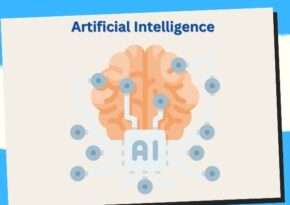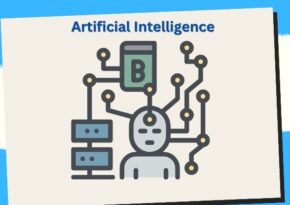
Smart ERP: The Dynamic Role of AI and Machine Learning in Business Evolution 

Redefine operational efficiency with the strategic integration of AI and machine learning in ERP, where technology meets innovation for exceptional results.
The Role of AI and Machine Learning in ERP 


The landscape of business technology is transforming, and at the heart of this revolution is the convergence of Artificial Intelligence (AI) and Machine Learning (ML) with Enterprise Resource Planning (ERP) systems. Integrating AI and ML with ERP is reshaping how businesses operate, making processes smarter, data-driven decision-making more insightful, and operations more efficient. In this article, we’ll delve into the significance of AI and ML in ERP, explore real-world use cases, and outline how this powerful combination is propelling businesses into a new era of innovation and growth.
Understanding the Synergy: AI, ML, and ERP
Artificial Intelligence (AI) is the simulation of human intelligence processes by machines, particularly computer systems. AI enables machines to learn from experience, adapt to new information, and perform tasks that traditionally require human intelligence.
Machine Learning (ML) is a subset of AI that focuses on developing algorithms and models that allow computers to learn and make predictions based on data. ML algorithms improve their performance over time through exposure to more data.
Enterprise Resource Planning (ERP) systems integrate and manage core business functions such as finance, human resources, supply chain, etc. ERP provides a centralized platform for data management, automation, and decision-making.
 The Role of AI and ML in ERP
The Role of AI and ML in ERP 
1. Enhanced Decision-Making:
AI and ML enhance decision-making by analyzing vast amounts of data from different sources. ERP systems integrated with AI and ML algorithms provide actionable insights that guide strategic and operational decisions.
2. Predictive Analytics:
ML algorithms can predict future trends and outcomes based on historical data. Integrating ML into ERP enables accurate demand forecasting, inventory management, and resource allocation.
3. Personalized Customer Experiences:
AI-powered ERP systems can analyze customer data to provide personalized experiences. This includes tailored product recommendations, personalized marketing campaigns, and customer support.
4. Process Automation:
AI and ML enable the automation of repetitive tasks and processes within ERP systems. This frees up human resources for more strategic and creative tasks.
5. Data Analysis and Insights:
AI and ML algorithms can analyze vast datasets quickly and extract meaningful insights. This enables businesses to identify patterns, anomalies, and opportunities that might go unnoticed through traditional analysis.
6. Optimized Resource Allocation:
AI-driven ERP systems can optimize resource allocation by analyzing historical data and real-time factors. This results in the efficient allocation of materials, workforce, and financial resources.
7. Continuous Improvement:
ML algorithms can learn from ongoing processes and adapt based on new data. This continuous learning leads to iterative improvements in business processes and outcomes.
8. Risk Management:
AI can analyze risk factors and predict potential risks in various business operations. Integrating AI with ERP helps businesses proactively manage and mitigate risks.
Real-World Use Cases of AI and ML in ERP
1. Inventory Management:
AI-driven ERP systems can predict demand patterns and optimize inventory levels. This prevents stockouts and excess inventory, leading to cost savings and improved customer satisfaction.
2. Demand Forecasting:
ML algorithms can analyze historical sales data, seasonality, and external factors to forecast demand accurately. This enables businesses to adjust production and supply chain operations accordingly.
3. Quality Control:
AI-powered ERP systems can use image recognition to identify defects in manufacturing processes. This enhances quality control and reduces the likelihood of faulty products reaching customers.
4. Supplier Relationship Management:
AI can analyze supplier performance data and external factors to predict potential disruptions in the supply chain. This enables businesses to address issues and ensure smooth operations proactively.
5. Fraud Detection:
AI algorithms integrated with ERP systems can detect unusual patterns or transactions that indicate potential fraud. This safeguards financial operations and prevents revenue loss.
Strategies for Successful Integration of AI and ML in ERP
1. Identify Business Objectives:
Define clear business objectives and outcomes you aim to achieve by integrating AI and ML with ERP. Whether it’s improving forecasting accuracy or enhancing customer experiences, clarity is key.
2. Data Preparation and Quality:
AI and ML depend on high-quality data. Ensure that data is clean, consistent, and relevant before integrating it with ERP systems.
3. Choose the Right Algorithms:
Select AI and ML algorithms that align with your business objectives. Different algorithms are suited for various tasks, such as classification, regression, or clustering.
4. Collaboration and Training:
Collaborate with AI and ML experts to develop and fine-tune algorithms. Train employees to understand the insights generated by AI and ML models.
5. Integration with ERP Platforms:
Choose ERP platforms that support integration with AI and ML capabilities. Look for platforms that offer APIs and tools for seamless integration.
6. Test and Iteration:
Test AI and ML models in controlled environments before full integration. Iterate based on results and feedback to improve accuracy and effectiveness.
7. Change Management:
Prepare employees for the changes brought about by AI and ML integration. Provide training and support to ensure smooth adoption.
Challenges and Considerations
1. Data Privacy and Ethics:
AI and ML integration raise concerns about data privacy and ethical use of data. Ensure compliance with regulations and establish ethical guidelines for AI-driven decisions.
2. Data Security:
Integrating AI and ML requires secure data management. Protect sensitive data from breaches and unauthorized access.
3. Algorithm Bias:
ML algorithms can inherit biases present in the training data. Regularly monitor and address algorithmic bias to ensure fair and unbiased outcomes.
4. Initial Investment and Resources:
Implementing AI and ML integration requires investment in technology, talent, and training. Consider the upfront costs and long-term benefits.
Conclusion
Integrating AI and ML with ERP is reshaping the business landscape by enhancing decision-making, automating processes, and delivering personalized experiences. This powerful combination empowers businesses to operate smarter, adapt faster, and innovate with data-driven insights.
Embrace the potential of AI and ML to transform your ERP ecosystem. By identifying strategic objectives, collaborating with experts, and staying mindful of ethical considerations, businesses can harness the capabilities of AI and ML to drive growth, efficiency, and competitive advantage. As the business world evolves, those who embrace AI and ML in ERP will stand at the forefront of innovation, poised for a future of success.
Related Queries










Save/Share this story with QR CODE
Disclaimer
This article is for informational purposes only and does not constitute endorsement of any specific technologies or methodologies and financial advice or endorsement of any specific products or services.
 Need to get in touch?
Need to get in touch?

We appreciate your reading. 
1.) 

Your DONATION will be used to fund and maintain NEXTGENDAY.com
Subscribers in the Philippines can make donations to mobile number 0917 906 3081, thru GCash.
3.) 
4.) 
AFFILIATE PARTNERS

World Class Nutritional Supplements - Buy Highest Quality Products, Purest Most Healthy Ingredients, Direct to your Door! Up to 90% OFF.
Join LiveGood Today - A company created to satisfy the world's most demanding leaders and entrepreneurs, with the best compensation plan today.










 Bridging data realms – delve into the realm where […]
Bridging data realms – delve into the realm where […]

